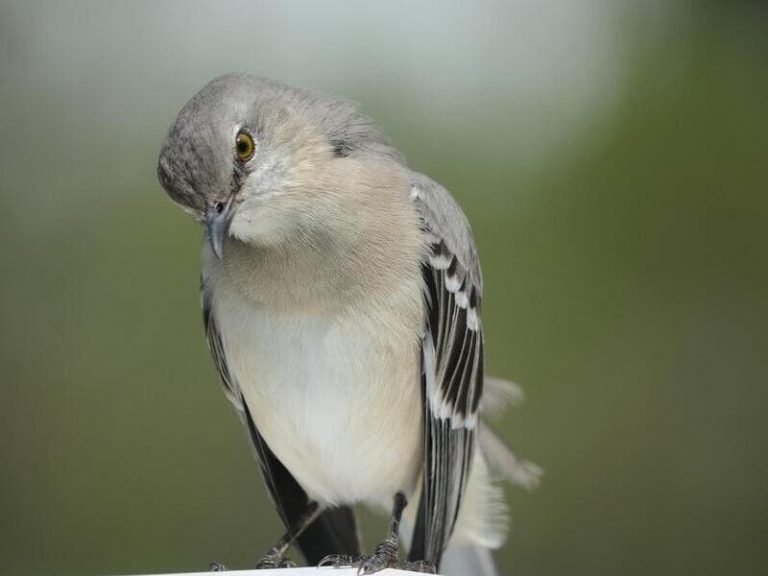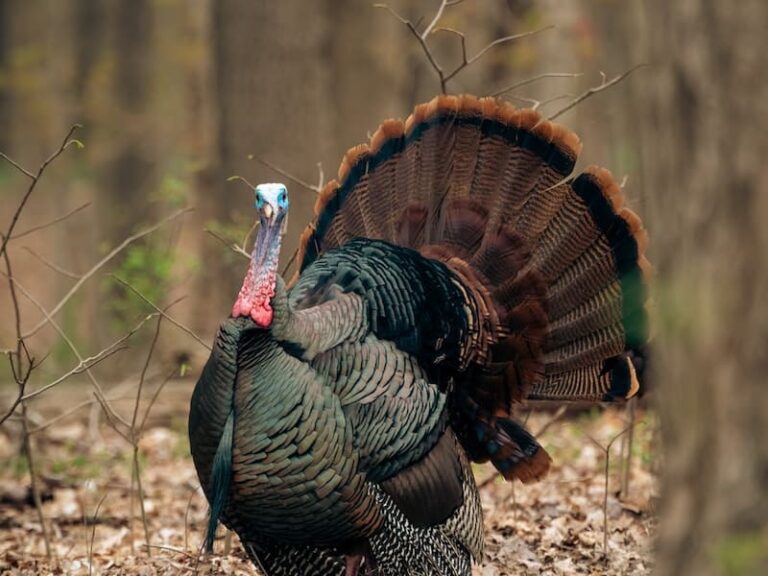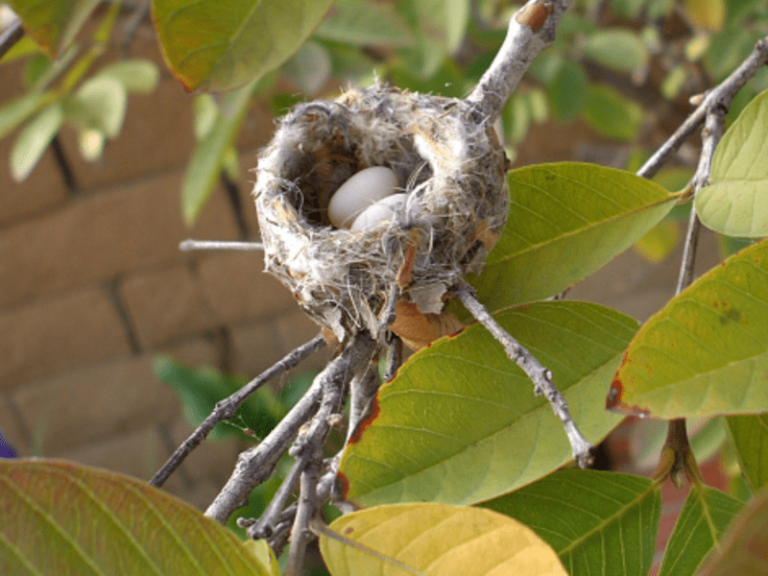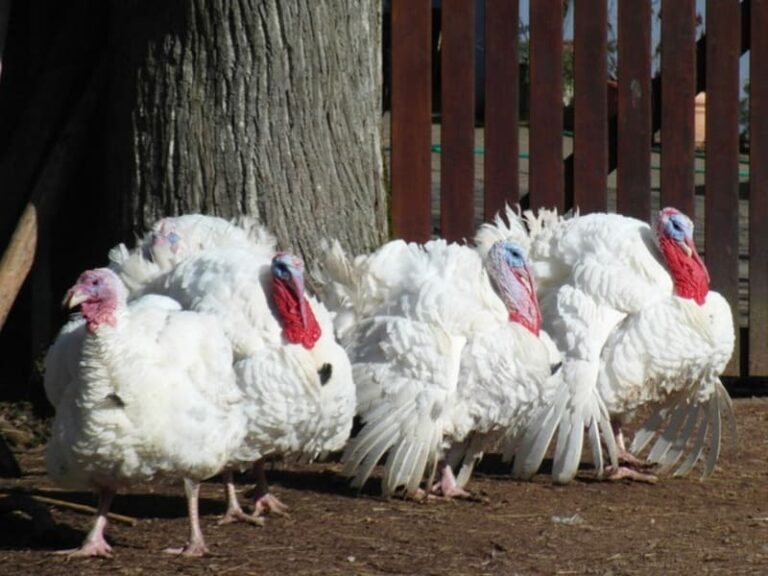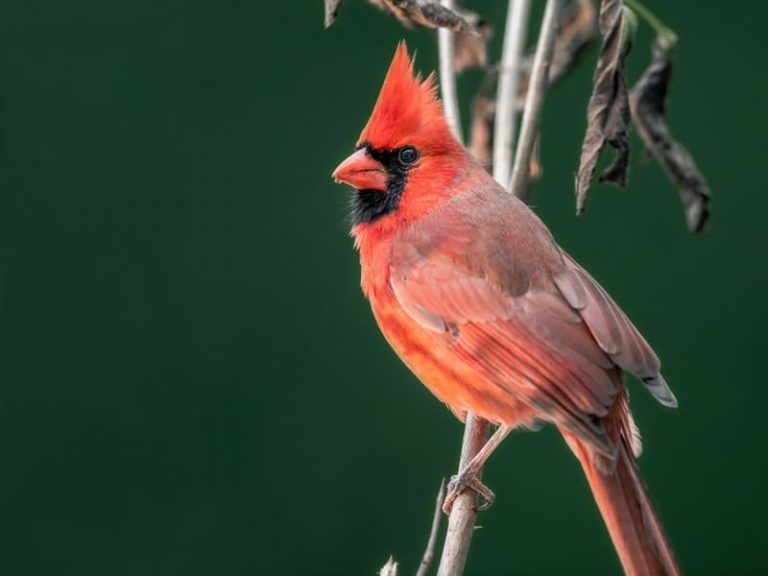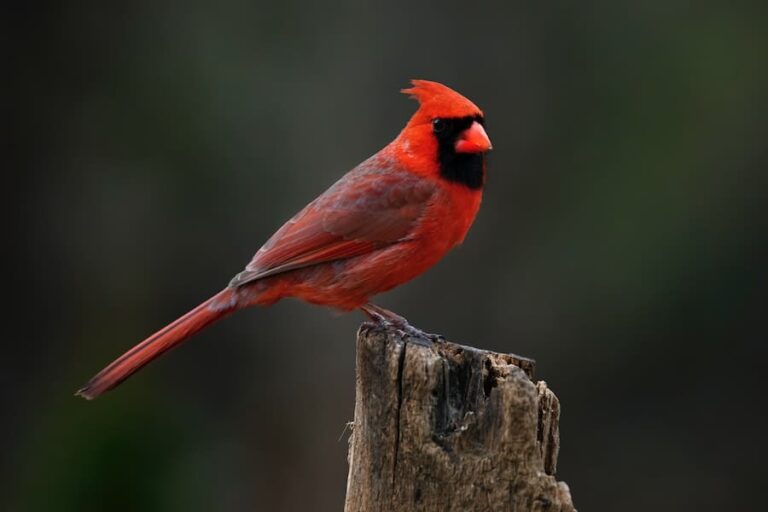How Long Do Crows Live?
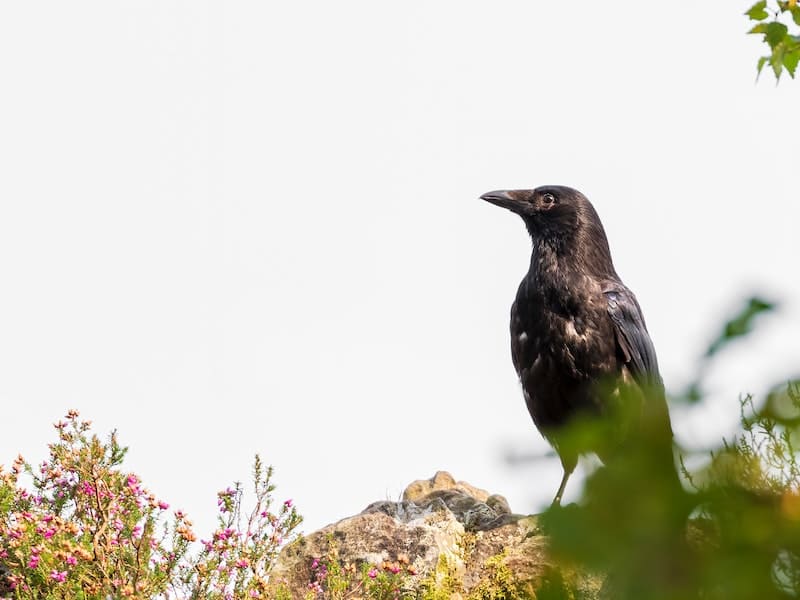
Crows, among the most intelligent and adaptable birds on Earth, are symbols of mystery in many cultures worldwide.
Although considered to be quite long-lived compared to similar-sized birds, their lifespans vary greatly based on species, location, and other external factors.
If you’ve ever found yourself wondering how long do crows live or want to learn more about these intriguing creatures, look no further!
In this blog post, we will delve into all things crow life expectancy related, discuss lifespan differences between crow species, outline potential risks that may reduce a crow’s lifespan, as well as provide some tips for extending a crow’s life expectancy.
Contents
How Long Do Crows Live?
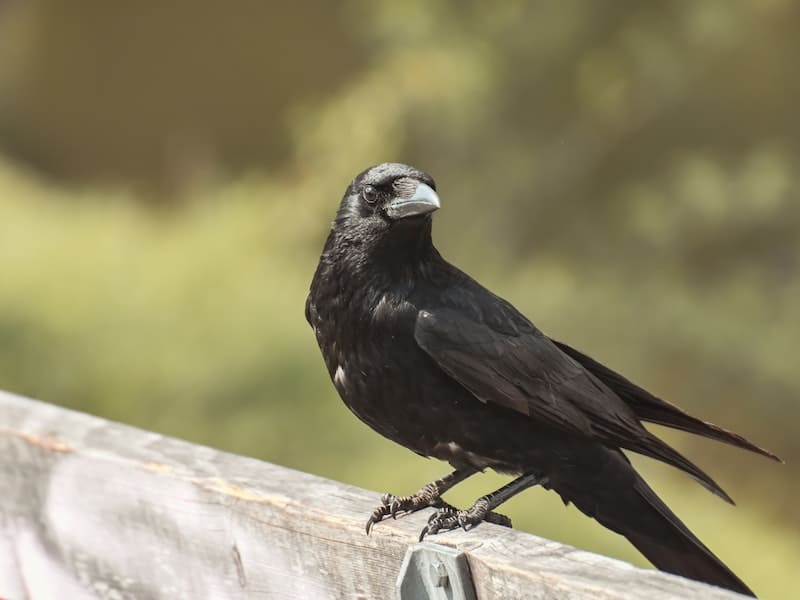
Crows are incredibly intelligent and social creatures, able to recognize and remember human faces with startling accuracy. They also boast a surprisingly long lifespan, typically ranging anywhere from 7 to 10 years in the wild.
In captivity, these birds can live much longer, as much as 15 or 20 years if they are provided with regular veterinary care and an enriched environment.
Crows are never truly alone and tend to live in larger groups called “murders”, gathering together to build nests, search for food, groom each other’s feathers, and defend their territory.
With the kind of care they deserve, crows may continue to spread joy through our world for many years to come.
American crow lifespan
The American crow is a species of bird commonly found across North America. This socially active bird is well known for its intelligence and its long lifespan, often exceeding seven years in the wild. In fact, records indicate that one American crow lived to be an incredible 22 years old!
Although the average lifespan of an American crow in captivity is only nine or 10 years, it’s still very impressive for such a small bird.
Whether living in urban areas or rural landscapes, the American crow exhibits behaviors that make them easily spotted by nature enthusiasts and bird watchers alike; there’s no denying their remarkable adaptability and resilience to various environmental factors makes them one of the more unique birds alive today.
Carrion crow lifespan
The carrion crow, or Corvus corone, is a common bird of the crow family. Though they have many predators in the wild, they are able to live quite a long life on average. In fact, with optimal conditions and adequate food sources, a carrion crow can live up to 15 years in the wild!
However, life for them is not always so abundant and this often results in lower lifespan expectations. Still, people who care for them in captivity can expect up to 29 years of life for these majestic birds.
Torresian crow lifespan
The Torresian Crow is known for its impressive lifespan in comparison to other crows. In the wild, most crows live for around 5 to 7 years, but the Torresian Crow can often live up to 15 years, almost double that of its other species.
This long lifespan is attributed to the bird’s strong adaptability and resourcefulness, two traits that are beneficial for a large, urban bird like the Torresian crow.
They make their homes in cities and towns, taking advantage of human waste and leftovers as food sources and finding shelter in areas humans have created themselves.
Thus, due to their ability to find reliable resources in man-made living environments and pair their positive adaptations with it, the Torresian Crow can experience a longer natural lifespan than many of its species.
Hooded crow lifespan
The hooded crow is a large crow species with an impressive lifespan of up to 20 years in the wild and even longer in captivity. Despite living in temperate climates, they are surprisingly hardy birds that are found in both rural and urban environments.
In addition to their extended lifespans, these birds are highly adaptable and have been known to consume a wide range of food, including small rodents, invertebrates, scraps from landfills, and junk dumps, seeds, nuts, and grains.
Interestingly, they also have strong homing instincts and have been observed returning home after being displaced by long distances. All of this makes the hooded crow one of the most fascinating species of corvid.
How long do crows live in the wild?
When it comes to crows, most people think of them as the dark birds seen around cities and towns, scavenging for food. However, many do not realize just how long these creatures can live in the wild. Crows typically have a lifespan of 7-8 years in the wild, but some specimens have been known to live up to 15 years!
Unsurprisingly, crows that are kept in captivity can have an even longer life expectancy than those living out in nature. It is thought that their diet, exercise levels, and lack of exposure to environmental risks contribute to an extended life span when they are raised in a safe environment. This goes to show that there’s far more to these intelligent birds than we give them credit for.
How long do crows live in captivity?
Crows are known for their intelligence and impressive problem-solving abilities, even in captivity. So it is not surprising that crows can live long lives in the right captive environment. Reports show that they can live up to 15 years of age when kept in a controlled setting.
In this kind of controlled setting, it is important that they stay healthy and active to make sure they reach the maximum potential of their lifespans. With proper care, such as sufficient food and nutrition, good hygiene, and socialization with other crows or humans, a crow held captive could potentially live up to 30 years old.
The Average Crow Life Cycle
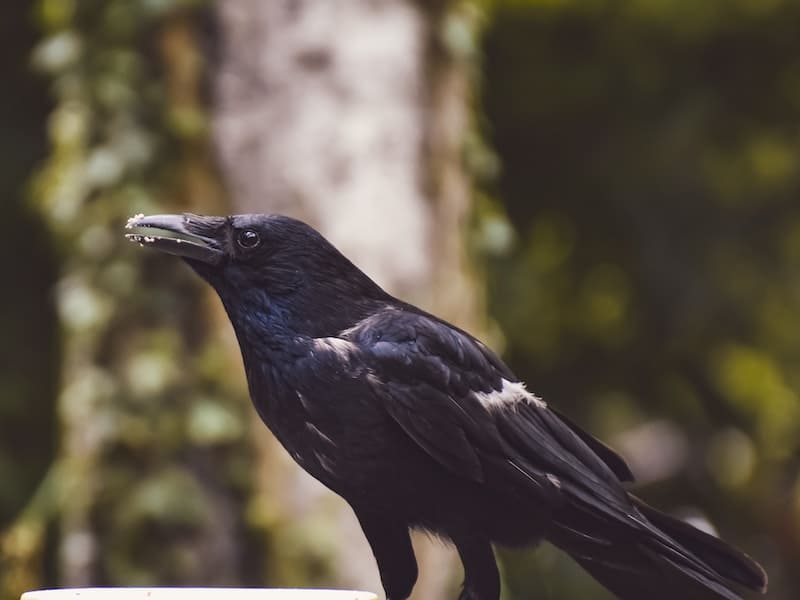
The average crow life cycle is a fascinating thing to observe. It begins with the crow staying close together in flocks and eventually pair bonding when they are ready to nest. After finding suitable habitat, the female will construct a nest using twigs and other materials.
The nest will house two or three eggs which she will incubate for 16-17 days, depending on her species of crow. During this time, the male provides food for her and protects the nesting area from predators. After hatching, both parents take turns caring for the chicks and bringing them food until they become independent after four weeks of life.
This is just one special part of their lifecycle, as crows grow up to mate more than once in their lifetime and build strong lifelong bonds with their partners, an incredible feat for any bird.
Nesting
Nesting habits of Crows are quite unique and fascinating. The birds begin their nesting ritual by finding a suitable spot near a protected area, such as near trees or tall grass. Once the right spot is found, the birds will form their nest using twigs and other materials they find in the area.
After building the nest, they will lay eggs that hatch soon after. The parents take care of their young offspring until they become strong enough to venture out on their own. This whole process generally lasts at least four weeks before the baby crows go off on their own and start preparing for their next nesting cycle.
Nesting behaviors of Crows help ensure the survival of the species in a very difficult environment and make them one of nature’s most interesting birds.
Hatchlings
Crows are one of the most adaptable bird species, and it only takes a single year for them to go from egg hatchlings to adult members of their flock. In the wild, crow parents will spend an incredible number of hours on tasks like gathering food, building nests and making sure their hatchlings stay warm and healthy.
After the eggs hatch, baby crows require amazing amounts of attention from even the busiest mom or dad. Crows are devoted parents who remain, careful guardians until their little ones can take flight for the first time and add a significant contribution to their neighborhood flock.
The remarkable life cycle of crows gives us a great lesson in perseverance as we watch these little birds grow up, thrive in nature, and continue building out strong family connections year after year.
Young Adult
Young adults in the crow life cycle are in a unique position, as they’re well on their way towards becoming fully independent. At this stage, young crows explore their environments more, looking for food and new places to perch.
Additionally, they’ve acquired enough knowledge that they can try and pass along what they’ve learned by teaching younger fledglings the fundamentals of flying and finding food. These birds put themselves at risk during this period too, when learning how to hunt larger prey or evade predators.
At this stage, young crows build an instinctive problem-solving ability that will help them survive throughout adulthood. Overall, being a young adult in the crow life cycle is an exciting stage that sets the tone for their future lives.
Adult Crows
An adult crow is an important and integral part of the life Cycle of a crow. When mature, crows take on a variety of responsibilities in order to ensure the survival of the species, including procuring food for themselves and their young, protecting and establishing nesting sites to lay their eggs, caring for chicks during incubation and after they hatch, finding shelter from predators and extreme weather conditions, educating offspring about how to best to navigate their domain and much more.
As with all living things in nature, there are no guarantees for success; nonetheless, adult crows are skilled at identifying risks and adapting as conditions change.
Some of the Oldest Crows Ever Recorded
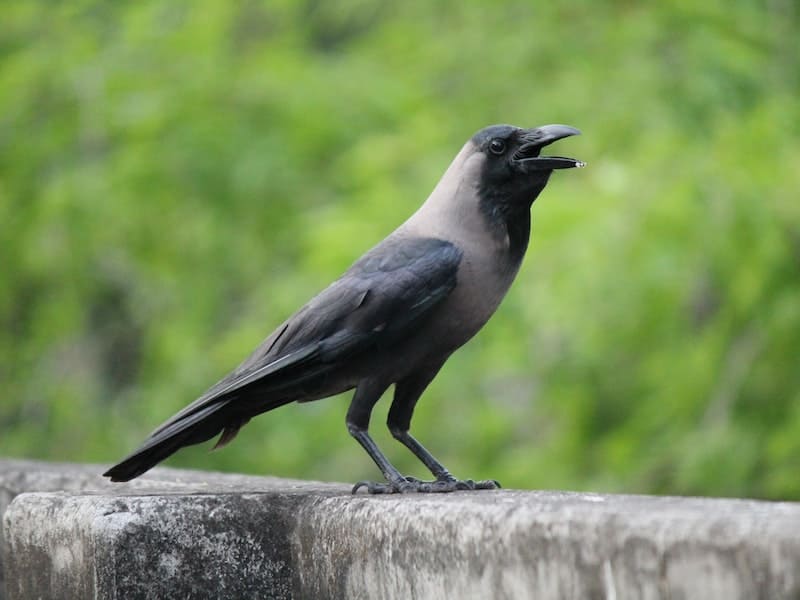
For centuries, crows have been a source of fascination, with many ancient spiritual cultures believing them to be messengers and bringers of wisdom. Some of the oldest known crows were documented in India, with one recorded individual believed to have lived to an astonishing 59 years old.
While this may seem impossible today, the conditions around its home in Kerala allowed it to enjoy a long and healthy life. In more recent times crows have been found living up to 40 years old in captivity; however, the average lifespan for wild crows is much shorter at only five to seven years.
Despite the limited lifespans, we still owe a great debt of gratitude to these fascinating birds who enrich our lives and remind us that old age is far from meaningless.
What do crows die from?
Although crows are generally hearty creatures, they are not immune to the threats of natural and human-related dangers. Disease, starvation, hunting, and collisions with vehicles are some of the more common causes of death for crows.
The West Nile virus has also been responsible for a decrease in crow populations. Poor weather conditions and reduced access to food sources will lead to an increased risk of starvation. Crows that are illegally hunted or trapped may also succumb to their injuries.
Additionally, due to their habit of scavenging along roadsides, crows can have fatal encounters with vehicles by becoming startled and flying into the path of oncoming traffic. Although these different factors can contribute to a decrease in crow numbers, with proper management and conservation efforts their populations will continue to remain robust in years to come.
What is the predator of a crow?
Crows are known to have a large number of predators from both the animal and human world. Foxes, eagles, hawks, and even feral cats will prey on crows. Humans can be predators as well through hunting or by destroying crow’s habitats in urban areas.
Crows often try to protect themselves by gathering in groups and scolding potential threats, their loud calls help scare away predators. They also sometimes employ mobbing tactics as a defense; flying and attacking potential predators as a group in order to protect their cob mates.
Frequently Asked Questions
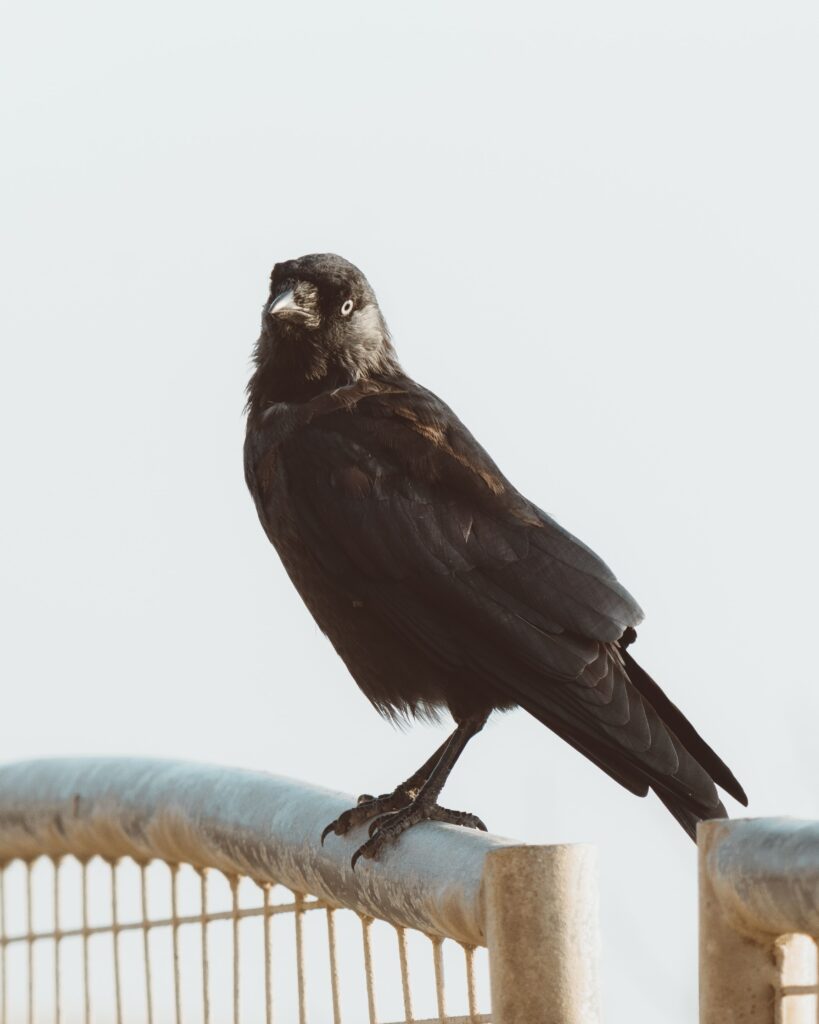
As with many other birds, the lifespan of crows varies depending on their environment. In the wild, crows generally live for about 5-7 years but have been known to live up to 15 years in captivity. The age of a crow can also be determined by examining its features; older individuals may have a longer bill and tongue, a more pronounced notch in the tail feathers, and different plumage characteristics.
Other factors that can affect a crow’s lifespan include diet, habitat quality, and predation pressure. For example, if food is scarce and pathogens are rampant, it may shorten their lives considerably. Despite these potential threats, however, crows are incredibly hard creatures who often survive in adverse conditions.
Do crows live for 500 years?
The idea that crows may live up to 500 years has been floating around for some time. Many people believe this to be true, but sadly science and technology have yet to advance enough to determine the life span of a crow accurately.
In the meantime, we can only speculate and make educated guesses as to how long a crow might live. Generally speaking, it’s believed that most crows live somewhere in the range of 5-10 years in the wild with reports of domestic birds living even longer.
Whether or not any species can exceed this mark remains largely unknown and likely will remain so until there is a technological breakthrough that allows us to find out definitively.
Can a crow live 100 years?
Although this has not been proven definitively, some theories exist in the realm of science that suggests that crows can indeed reach impressive lifespans. Due to the unique abilities of crows to remember routines, recognize human faces, learn new tasks quickly, and survive even in urbanized areas, some experts believe that a well-cared-for crow could have the capacity for incredibly long lifespans.
It remains to be seen exactly just how long these complex creatures can survive and thrive, but it is clear that their intelligence certainly gives them a better chance of attaining greater longevity than other animals in their category.
Do crows mate for life?
Crows are known to be among the most intelligent of birds, and for this reason, it’s no surprise that people often wonder if crows mate for life. The answer may not be straightforward, as crows have been observed exhibiting both monogamous and polygynous mating behavior.
Ultimately, whether a crow will remain with its partner for life depends on many factors such as the bird’s age, history of relationships, availability of food sources and nesting sites, and the overall health of both partners.
On average though, it appears that most crows stay with their chosen mate for at least two years before searching for another. What is clear is that crows have complex social lives where close bonds between partners can be seen in both romantic and platonic relationships.
What is the average lifespan of a black crow?
On average, a black crow can live between 7 and 15 years in the wild. This is an impressive lifespan for a medium-sized bird since many other species tend to live shorter lives when left unchecked by human care.
The main factors that affect the lifespan of a black crow in the wild are environmental conditions (extreme temperatures and lack of food), predation from larger birds, and diseases.
Efforts to ensure healthy habitats for crows, such as providing food sources and protecting them from threats like habitat destruction or hunting, can result in longer lifespans for these birds.
Which bird lives 300 years?
One of the longest-living birds on earth is the albatross. With a life span ranging from 50-70 years in wild conditions and up to 80-90 years in captivity, these majestic seabirds have one of the most impressive lifespans of any bird species.
It is believed, however, that large albatrosses reach an age of over 100 years old and even 300 years if they stay healthy. For example, scientists studying wandering albatross discovered two tagged birds with estimated ages over 60 years!
These incredible birds live substantially longer than most other types of birds due to their diet which mainly consists of squid and fish rather than small insects, ensuring they receive plenty of high-quality nutrition to live longer.
Do crows remember faces?
While it is well known that crows are highly intelligent creatures, one of the most astounding aspects about them is their ability to remember faces. At first glance, it may seem like any other basic behavior of a wild animal, however, crows have taken this skill to a new level.
Studies done on these birds showed that some crow species can not only recognize specific human faces and associate them with negative interactions but they can retain those memories for up to five years!
This remarkable trait can help the crow protect itself or even warn its flock when danger is lurking nearby. It is no surprise why crows have been featured in many stories throughout history, they are truly amazing creatures.
Final words
In conclusion, crows are intelligent creatures who live a surprisingly long life. Their average lifespan is 8 to 12 years in the wild, but some captive crows have been known to reach 20 years of age. As a species, they have high levels of intelligence, which allows them to survive in the modern world with ease and take advantage of new resources.
They are highly adaptable and can live near human settlements and in densely forested areas alike. What’s more, crows thrive when living together in large groups or flocks, bonding with mates for life and behaviorally teaching their young how to find food and avoid danger.
You will also enjoy reading:

